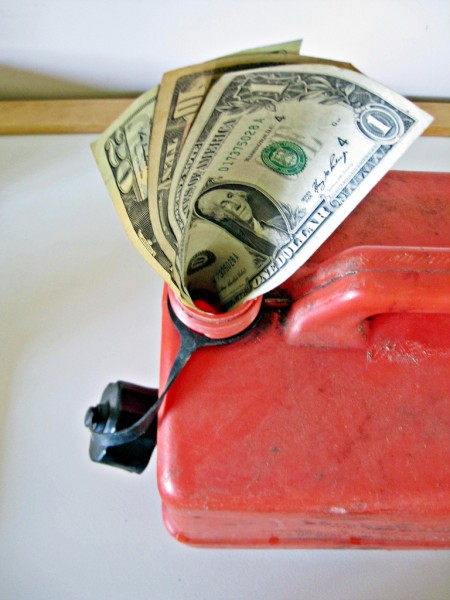
While President Obama cracks down on carbon pollution from power plants nationwide, a local lawmaker is prompting state legislators to impose a tax on all carbon-based fuels in New York.
The new legislation, introduced by Assemblyman Kevin Cahill, D-Kingston and co-sponsor Barbara Lifton, D-Ithaca outlines a market-based solution to climate change that would raise the price of fossil fuels to reduce demand. Its ultimate goal is to have New Yorkers rely less on carbon-heavy fuels and shift to more renewable sources to reduce the state’s carbon emissions.
The tax would start at $35 per metric ton and increase annually by $10 until it caps out at $180 per ton. Coal, natural gas, renewable biomass and petroleum products that contain carbon or emit carbon dioxide when combusted would be subject to the tax. This includes all fuel used for powering non-electric vehicles and other machinery, heating and cooling homes, generating electricity and operating industrial work. New Yorkers would pay roughly 35 cents more for a gallon of gas, and an average household would pay around $350 annually toward the tax, Cahill said. The tax would be in effect 90 days after becoming a law.
The legislation also proposes returning 60 percent of the generated tax revenue to low and moderate-income households, which would diminish any out-of-pocket costs for those who may not have the finances to pay. In turn, the other 40 percent will be dedicated to investment in renewable energy programs such as solar technology.
“This is a measure intended to change the behavior of New Yorkers, change the model that we live under in New York for energy and create a level playing field that will not unfairly penalize one portion of our society more than others,” Cahill said.
This comes as the Obama Administration works to regulate carbon emissions from America’s power plants, which have never in history been rectified for contributing to pollution – and what is now climate change. On Aug. 3, Obama and the Environmental Protection Agency (EPA) unveiled legislation that will create a mandatory carbon emission reduction for American power plants by 2022.
The EPA reports the nation’s power plants account for roughly one-third of all carbon emissions. Though these initiatives are currently coming to light in the U.S., one of its neighboring countries has already made strides in reducing its carbon emissions
In 2008, British Columbia imposed North America’s first-ever carbon tax that reduced both fossil fuel consumption and citizens’ overall income taxes. A 2014 report by The Economist shows that the Canadian Province saw a 16 percent decrease in per-person fuel consumption while the rest of the country’s usage steadily increased by 3 percent. The tax capped out at 30 Canadian dollars (a near 23 US dollars) per metric ton of emissions in 2012, but is still in place today.
Cahill says the next step for New York’s carbon tax bill is to familiarize it with his colleagues to gauge what kind of support they can collect.
“I am perfectly content if over the course of the next session of the legislature results in an opening of discussion and people offering alternatives,” Cahill said. “My colleagues and I are not married to the text of this bill and we’d be content with something else that is proven to work that can also receive broadened support of the legislature.”
Though the bill expects support from environmental advocacy groups and economists, not everyone is so sure that a carbon tax will do good for New York. Those in opposition cite that expecting people to change their way of living on a large scale will yield unsuccessful results.
Naturally, Cahill refutes this.
“[Some] defend the status quo carbon-based economy and think that any attempt to tinker with it is a sacrilege,” Cahill said. “The fact of the matter is that if we don’t tinker with it, we’re all in trouble.”
